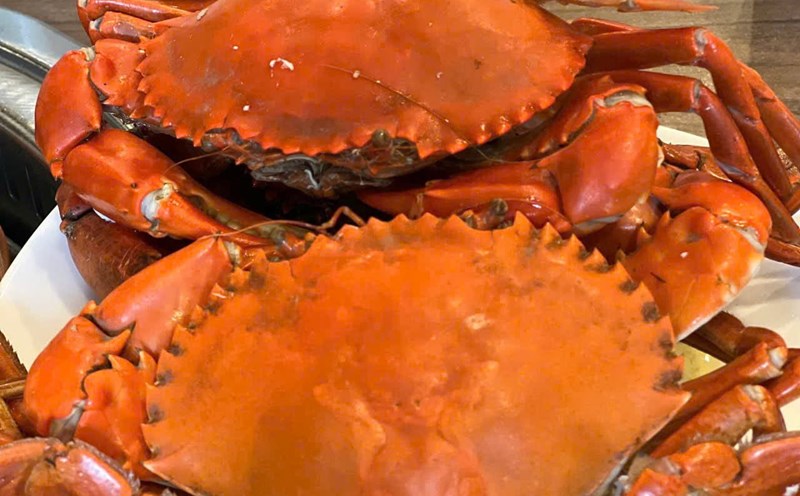According to the World Health Organization (WHO) and the US National Institutes of Health (NIH), vitamin C helps reduce uric acid in the blood thanks to the ability to:
Increase uric acid excretion through the kidneys by improving excretion function in the renal Tube.
Strong antioxidants help limit cell damage caused by high uric acid.
Limit inflammation and stabilize the immune system, indirectly reducing the risk of recurrent gout attacks.
Here are 3 dishes rich in vitamin C that help lower uric acid naturally:
Salmon grapefruit salad
Grapefruit is one of the top fruits rich in vitamin C, with 100g containing up to 38mg of vitamin C. Combined with salmon, rich in omega-3 fatty acids, which have anti-inflammatory effects and support the metabolism of purines, the refreshing cold salmon grapefruit dish helps reduce the burden of uric acid on the body.
Simple preparation:
Steamed salmon or lightly Apply the pan, cut into thin pieces.
Mix with grapefruit, herbs, olive oil, apple cider vinegar and a little black pepper.
According to the European Journal of Clinical Nutrition, combining omega-3 and vitamin C in meals can significantly improve inflammatory response and pain in gout patients.
Lean Malabar spinach soup
Malabar spinach contains about 185mg of vitamin C in 100g, far exceeding oranges or strawberries, and is especially suitable for cooking without losing too many nutrients. Lean meat (hench or chicken breast) is low in purines, suitable for people who need to control uric acid.
Cooked vegetables containing vitamin C are still effective in increasing uric acid excretion, as long as they are not cooked for too long (>10 minutes).
Guava, bell pepper and kale salad
Guava, red bell peppers and kale are all superfoods rich in vitamin C and antioxidants such as quercetin and flavonoids. 100g of guava can provide up to 228mg of vitamin C, 4 times more than oranges.
Salads from these ingredients help cool the body, reduce arthritis, improve digestion and prevent purine accumulation in the blood.
You can mix salad with olive oil, apple cider vinegar and chia seeds to increase fiber and plant-based omega-3, two factors that also effectively support uric acid reduction.
Notes when cooking dishes rich in vitamin C:
Do not cook too much or re-heat because vitamin C is easily broken down at high temperatures.
Limit sugar in dishes because fructose increases uric acid synthesis.
Divide your vitamin C intake equally throughout the day, avoid taking it over and over again.











